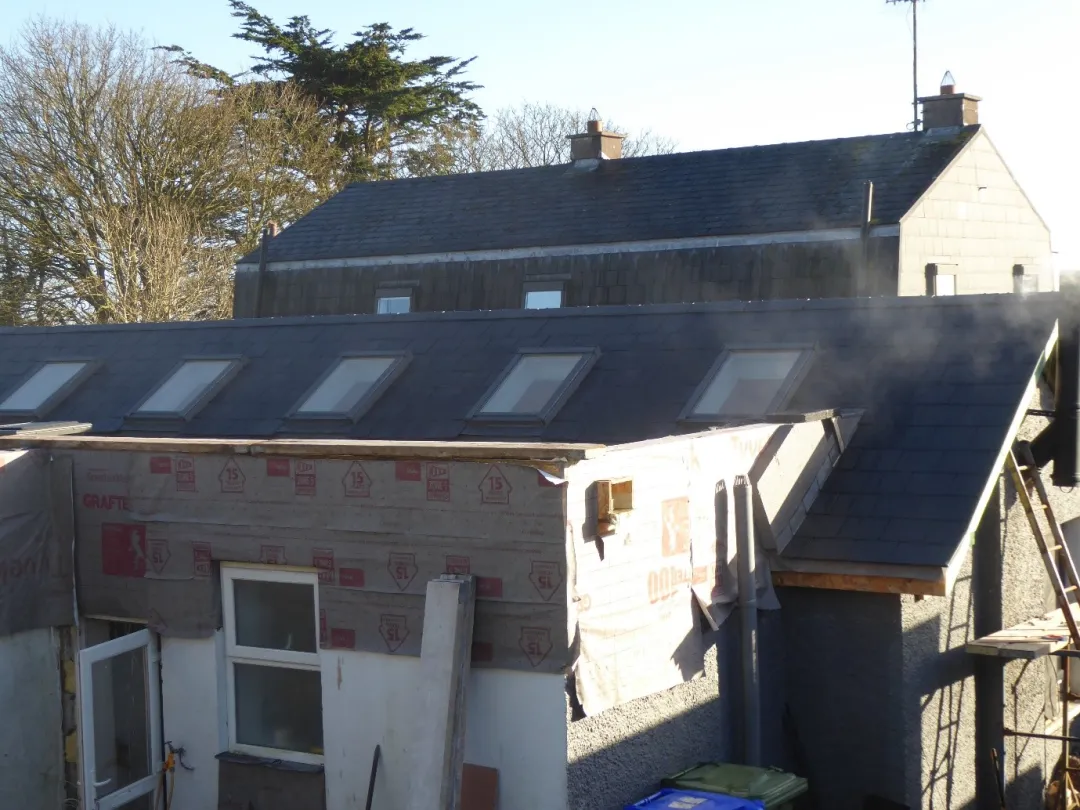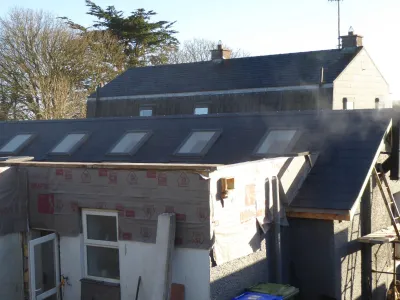Summary
The Carbery Housing Association (CHA) is a community-based housing association founded in 2001 by local residents of Baltimore and Skibbereen, two small rural towns in West County Cork, Ireland. Since 2013, the CHA has been working to prevent homelessness through its ‘Mortgage Rescue’ programme in rural and remote areas. The initiative purchases homes at risk of repossession, allowing families to remain as social housing tenants under affordable, means-tested rent agreements.
Results
- Since 2013, the ‘Mortgage Rescue’ pogramme has purchased 21 houses and secured a home for around 70 residents, preventing homelessness and fostering community stability;
- It retrofitted 12 homes to increase energy efficiency and reduce fuel poverty;
- Another 14 homes are in the pipeline to be secured and retrofitted;
- It implemented AI-controlled solar power systems to reduce energy costs and carbon emissions benefitting from EU-funded projects such as RED WoLF;
- Tenant training and partnerships with local authorities raised community awareness and engagement;
- Its rental income and public-private funding models demonstrated financial sustainability.
Resources
Documents
Context
Ireland has faced a serious mortgage payment crisis since the collapse of the housing market in the early 2010s. This resulted in many rural homeowners at risk of losing their homes, especially in West Cork where mortgage-to-rent schemes were scarce. Families, including those with low incomes or dependent on welfare, found themselves on the brink of homelessness due to unmanageable mortgage payments.
At the peak of the crisis in 2016, over 83 000 residential mortgages in Ireland were in debt for more than three months, with 30 000 homes at imminent risk of repossession. In Cork County, nearly 5 000 families were affected, with approximately half residing in rural areas. Faced with the threat of eviction, families struggled to maintain their homes and connections to their local communities.
CHA’s ‘Mortgage Rescue’ programme was set up to address this crisis by purchasing homes and maintaining families as tenants, thus preventing homelessness and securing long-term housing stability.
Objectives
- Prevent homelessness by purchasing properties at risk of repossession and maintaining former owners as tenants under social housing agreements;
- Improve living conditions through energy-efficient retrofitting, reducing fuel poverty and environmental impact;
- Support community stability by allowing families to remain in their local areas, fostering social inclusion and community cohesion;
- Develop and promote innovative housing solutions through participation in EU-funded projects.
Activities, key actors, and timeline
The Carbery Housing Association (CHA) drives the ‘Mortgage Rescue’ programme, a community-led housing initiative aimed at securing long-term, affordable homes for families at risk of eviction. The association works in partnership with local authorities, including Cork County and City Councils, and secures funding through local authority loans, commercial mortgages, and EU grants.
The project begins with a joint identification of distressed properties in rural areas of Cork and City, primarily those where residents face eviction due to mortgage debts. The CHA conducts surveys and assessments to evaluate the financial viability of purchasing each property, followed by negotiations with lenders to acquire the houses.
Once acquired, the homes undergo essential repairs and retrofitting to improve energy efficiency. Typical upgrades include insulation, heating system improvements, and renewable energy installations such as solar panels. Repairs and renovations are conducted by local contractors, creating economic opportunities within the community.
Following purchase, tenants sign means-tested rental agreements to ensure affordability. The rental income contributes to ongoing maintenance and loan repayments. To further reduce energy poverty, CHA has implemented AI-controlled solar power systems as part of the RED WoLF Interreg NWE project, enabling efficient energy management.
CHA also carries out training and capacity building for tenants and community members, promoting energy awareness and practical skills.
The project is supported by a volunteer board of members and a small professional team, while technical works are carried out by local contractors. Collaboration with local authorities and community organisations ensures a comprehensive approach to social housing and community development.
Success factors/lessons learnt
- Community-led governance: the initiative’s success is rooted in a bottom-up approach, empowering residents and maintaining local ownership;
- Financial viability: combining public loans, private mortgages, and rental income ensures economic sustainability;
- Energy transition: retrofitting homes not only reduces fuel poverty, but also supports climate resilience, making the project relevant to address contemporary environmental challenges;
- Innovative solutions: integrating AI-controlled solar power systems through EU projects has improved energy management and demonstrated the potential for scalable renewable integration;
- Replicability: the approach, demonstrating that small, community-driven organisations can address complex housing issues, is replicable in other rural contexts.
Contacts
- Jose Ospina, Chair, jose@carberyhousing.eu, +353 868224429

